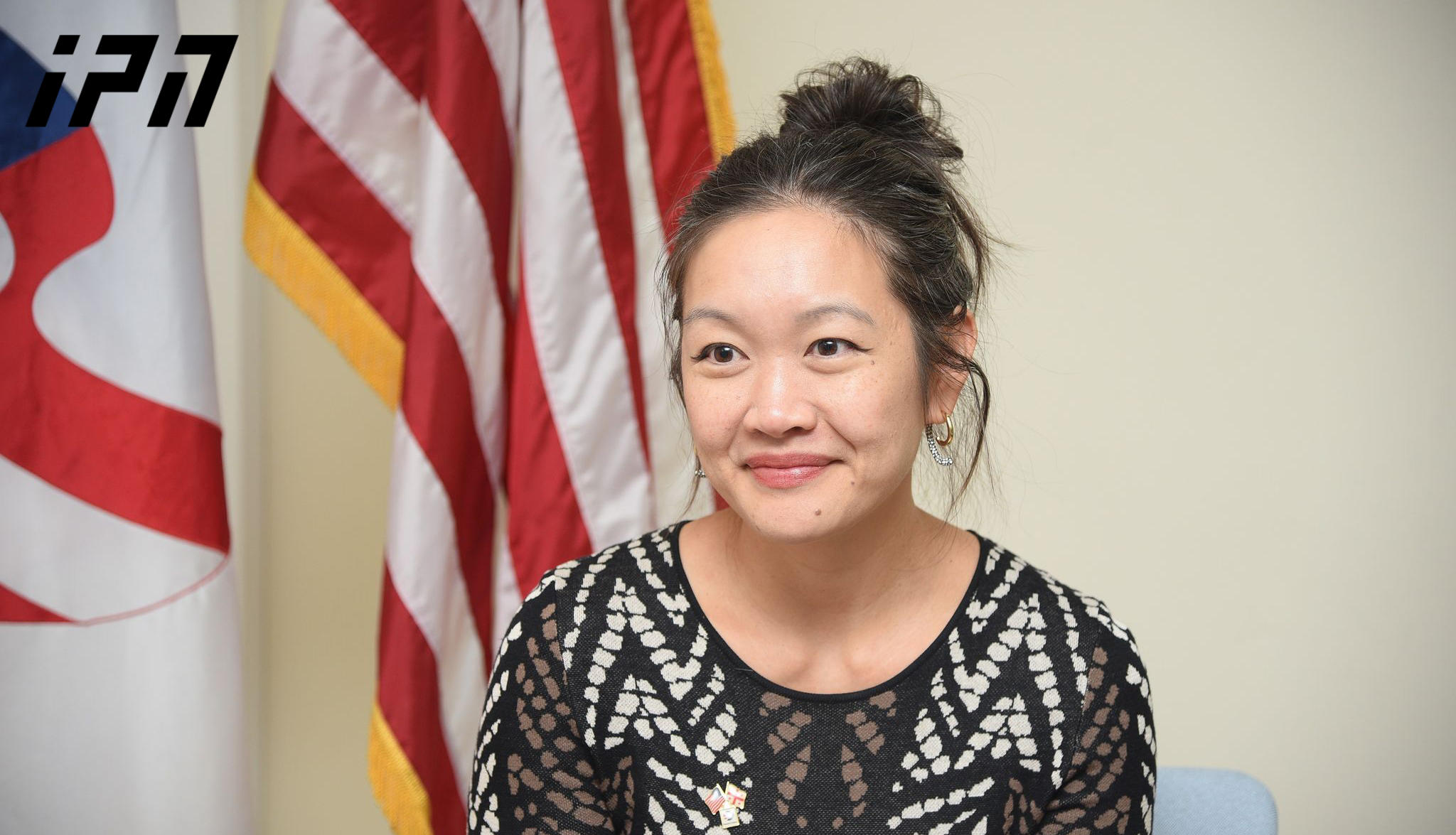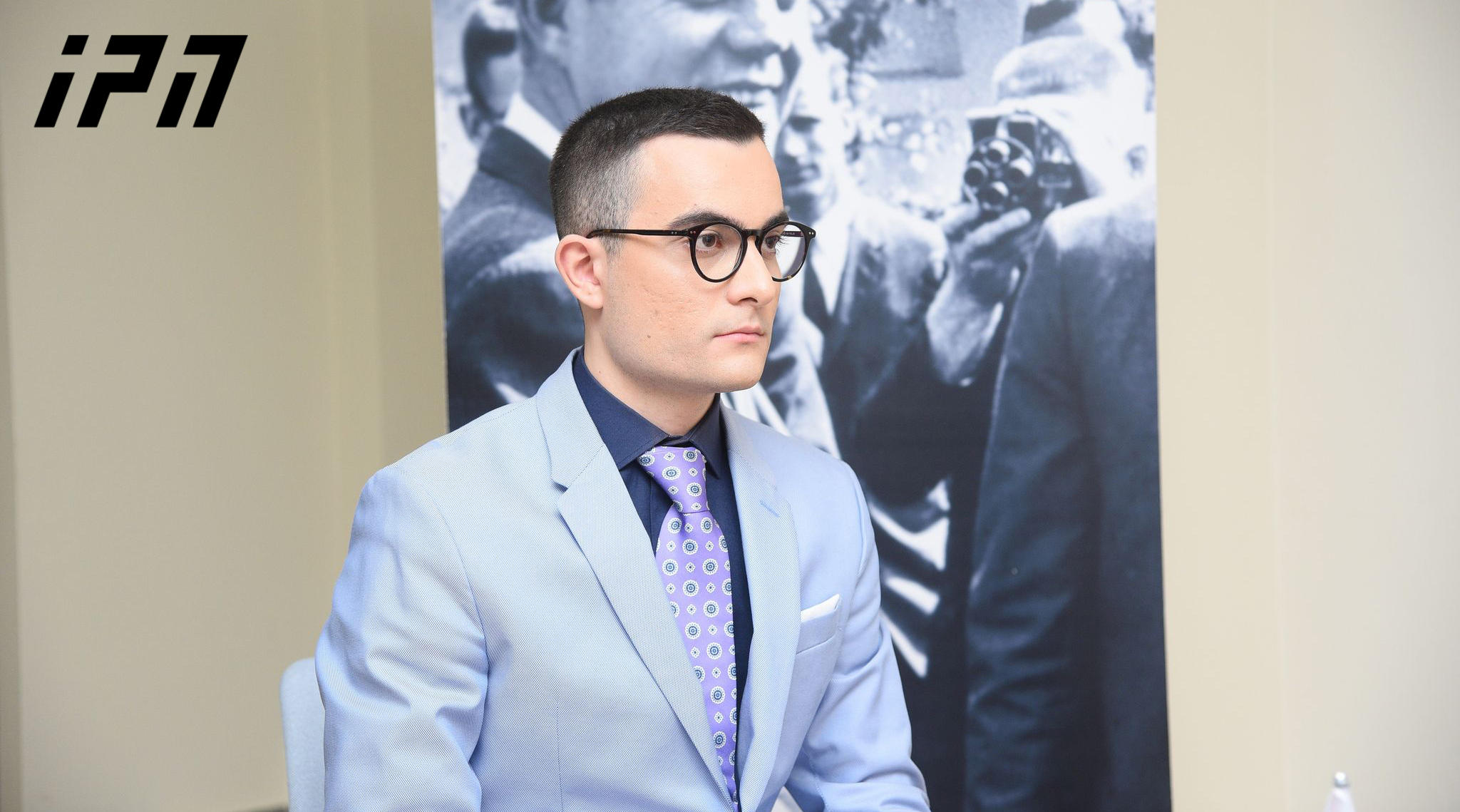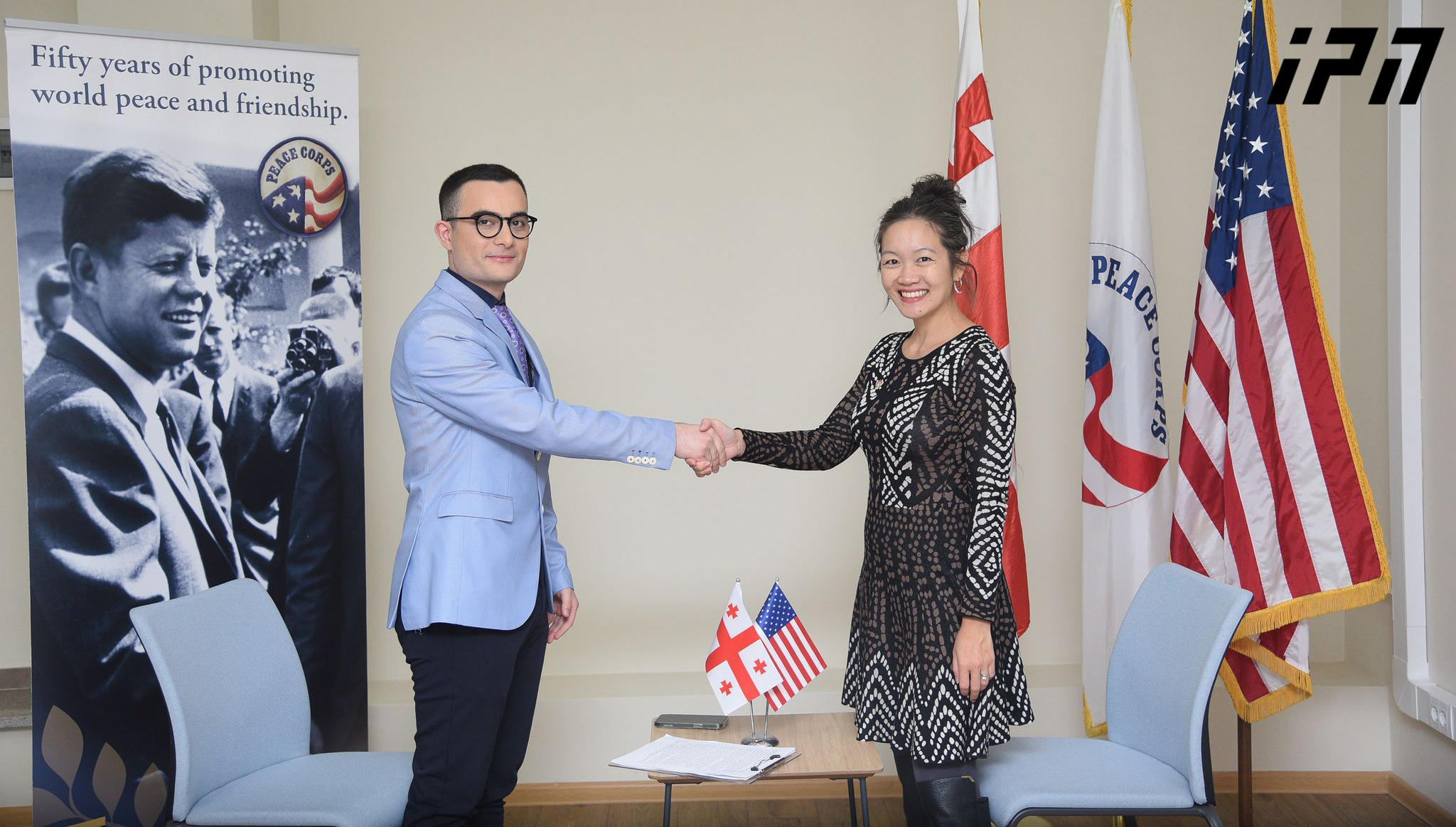The Peace Corps is an independent agency and program of the United States government that trains American volunteers and sends them to different countries. It was founded by President John F. Kennedy in March 1961 to promote world peace and friendship. In September of the same year, the US Congress approved the Peace Corps Act.
The Peace Corps has been operating in Georgia since 2001. Hundreds of Peace Corps Volunteers have served in Georgia throughout this time. The program promotes social and economic development in the country, as well as deepening the friendship between Georgia and the United States of America.
Last week, Tbilisi hosted the first regional conference of the Peace Corps after the Covid pandemic. It was attended by representatives of 19 countries. Within the framework of the event, Rebecca Sharp, a presidential appointee in the Biden administration serving as Regional Director of Europe, Mediterranean, and Asia at the Peace Corps, visited the capital of Georgia.
Rebecca Sharp spoke in detail about the volunteer program in an exclusive interview with InterPressNews and noted that at the beginning of next year, after an almost three-year hiatus caused by the pandemic, American volunteers will return to Georgia.
- Rebecca Sharp, the Regional Director for Europe, Mediterranean, and Asia for the Peace Corps, thank you very much indeed for speaking to us!
- Thank you!
- Let me begin our interview with a question regarding the regional conference of the Peace Corps here in Tbilisi, which you have just attended and which has brought together the representatives of this program from numerous countries. How significant was it? Why did you decide this conference to be held in the Georgian capital? Please, tell us a little more regarding this event.
- This has been a fantastic opportunity for us to have our Directors of Management and Operations conference here in Georgia. It was a very easy choice to select Georgia for this conference because it is such a beautiful country with a wonderful history. It is very centrally located, so our colleagues from Europe and Asia would be able to travel here. Most of all, our Peace Corps Georgia team here in Tbilisi is incredible, and they have gone above and beyond to prepare this conference for us. This is the first conference that we are holding regionally since the pandemic began. So it's been about three years since we've had a global gathering. There are 19 countries across Europe, Mediterranean, and Asia in the region that I lead. It is an invaluable opportunity for us to come together, share experiences, opportunities, best practices, and lessons learned from some of the countries that have started to welcome back volunteers. The last year has been very exciting because we are inviting volunteers to over 50 countries throughout the world, and some of the countries in Europe, Mediterranean and Asia have already received them.
So in that sense, it's just a fantastic time to gather together in person, after this long, difficult hiatus, and build those connections and share those practices.

- I suppose many consumers of our media outlet are pretty aware of the tremendously important work of the Peace Corps, however, I believe it will be better if you comprehensively explain the contribution of the Peace Corps Volunteers to the social, economic, and human development of this country. How important is this program for Georgia?
- I think it's a really amazing and important program. The mission of the Peace Corps is obviously peace and friendship, but we are invited by each host country's government to work on the areas that the host country's government prioritizes. In Georgia, the two sectors that we work in are education and individual and organizational development. So this is about investing in Georgia and its young people. It's about investing in English language education, which has been a priority for the Ministry of Education and Sport. It is also about building up civil society, which is also a priority of this government. So our volunteers serve for two years. They actually receive three months of comprehensive training in Georgian language, culture and sectoral best practices like teaching methodologies or organizational development, and investment capacity methodologies. Then they go and make a commitment of two years to serve in the community. There is no other global development program that I can think of where people integrate so deeply into their local communities, and they serve all across the country of Georgia in the most remote rural areas and in the cities. They serve in schools, and local NGOs. The people-to-people connections, friendships and the individual bonds have ripple effects that we cannot even believe. I'll give you an example: when I was in the Balkans, which is also a part of my region, I met a teacher of English language and literature at the University of Tirana. She said her whole life was changed just because a Peace Corps Volunteer taught her English in secondary school. She didn't really have much interest in English, and now she is a world-renowned scholar of Emily Dickinson, the poet. She’s a published author and she teaches 90% of the teachers in Albania. Her whole life trajectory was changed based on the work of a Peace Corps Volunteer.

So these relationships, these individual bonds and connections, it's not even possible to tell all of the positive impacts they will have in one year or two years. It's a ripple effect that can last across generations and really changes the lives of people. The people whose lives it changes the most are the volunteers themselves. I served in Kazakhstan as a Peace Corps Volunteer. There, Volunteers learn so much about intercultural leadership engagement, foreign policy, and languages. They are actually ambassadors of the countries that they served in, even well after their service, and for the rest of their lives. They have ties to their country of service. Our returned Peace Corps Volunteers who served in Georgia are incredibly dedicated to being cultural ambassadors of Georgia as well after they leave this country. Some of them actually never leave. They stay here.
- It’s almost two years since the Peace Corps Volunteers have not been serving here in Georgia due to the COVID-19 pandemic. As far as I know, there is an utmost desire in Georgian regions the American volunteers to be back in their own communities. Currently, there is a drastic downward trend of COVID-19 cases here and the epidemic situation is quite stable. So, given this, should we expect that the Peace Corps Volunteers will come back to Georgia in the near future?
- Absolutely. We are so excited to do it. Our Volunteers are planning to come back to Georgia early next year. So, this period has actually been a really opportune period for us to revamp a lot of our programming, enhance our safety and security procedures, and invest in our facilities. We have done a beautiful remodel of the Georgia Peace Corps office, so I feel we really used this pause during the pandemic to the best of our abilities as an opportunity to really invest in the future of the program. We won't be coming back exactly the way we were before because the world has changed and the Peace Corps needs to rise up to the challenges of those changes. For example, across the world, including in the United States, but in all the countries in which we serve, the COVID-19 pandemic has created a backsliding in development indicators. For instance, you can see that in education children had a huge educational gap that was created through COVID. Many children were left behind in the move to hybrid learning. They need digital literacy skills or online learning skills, and so Peace Corps can be part of that transition to build back the education system and resilience after the COVID-19 pandemic. I think COVID revealed some important areas in which countries now are excited to invest and the Peace Corps plans to be a partner in coming back.
- You've just said that the Peace Corps Volunteers will return to Georgia early next year. How many volunteers are coming back?
- Very good question. We have a robust application and medical, legal clearance process that is currently ongoing. We expect between one and three dozen volunteers, but it is a range, and the reason that we provide that range is because these are individual peoples’ lives they are on an individual journey. They actually prepare to volunteer for potentially up to a year going through a rigorous application process in which they have to pass interviews, be selected, and then be placed in Georgia.
If their skills match the programmatic needs that we have here, then they also have to be cleared medically and go to appointments to make sure that they meet the requirements to serve here. This is a lengthy process. The roster of volunteers [scheduled to come to Georgia] is not yet complete. It is still in process, and we’re starting out a little bit smaller than we were before the pandemic. The first cohort will be slightly smaller than pre-pandemic numbers so that we can dust off those cobwebs, and test our systems. As I said, we've revamped much of our programmatic expertise and I think it'll be wonderful to receive any number of volunteers to the country next year. From there we will continue to grow.

- You are in charge of leading the Peace Corps program in Europe, Mediterranean, and Asia - quite a vast area of the world. I wonder how you are assisting those countries, which are under your leadership when it comes to promoting the values of peace, democracy and liberty. There is no doubt that peace, democracy and liberty are at risk nowadays across the globe, therefore where and how do you see the role of the Peace Corps to uphold those values?
-That's such a great question. You are absolutely right. There has never been a greater need for the Peace Corps mission of peace and friendship when we have an active war that is happening within this region. Ukraine is actually one of the 19 countries in the Europe, Mediterranean, and Asia region at Peace Corps and has been one of our biggest countries to date in terms of the number of volunteers serving at any given time. It is incredibly important to build up the civil society of the countries in which we work. That is a priority of the governments that have invited us. The governments invite us to do youth development, to invest in young people and in their futures, and to improve the levels of English language education, and of course, to develop skill sets that will allow for leadership. We've also started partnering with our host countries on national volunteerism movements, which has been really exciting for people who want to serve their own country, who are from the local population and can actually work with Peace Corps volunteers to talk about national service models. So all of these things I think build up a robust civil society that lends itself to the values you just mentioned.
- Could you please tell us how you are going to enhance the work of the Peace Corps in Georgia in the coming future? I am sure you have some future plans regarding this country, so it would be great if you share some of them with us.
- Georgia is a very unique and forward-leaning Peace Corps country because we have different models of service to suit the different needs of the communities that we work with in Georgia. Specifically, there are three models that I can tell you about. The traditional Peace Corps model is a two-year volunteer model that I just mentioned. That will always be sort of the heart and soul of Peace Corps service, that two-year commitment to really embed in communities for the long term. These generalist volunteers will assist with the priorities of the Georgian government. The second program we have is a very innovative program that has a long history in Georgia called Peace Corps Response.
Peace Corps Response entails a shorter duration of service with experienced expert volunteers. So the duration of Peace Corps Response services is usually about a year, and the skill level that is required is more specific.
So for example, the Ministry of Education has asked us to place a Peace Corps volunteer to help them improve inclusive education support. So we will take someone with expertise in that area and place them in the Ministry for a year. We’ll have other Peace Corp Response positions that we hope to welcome back to the country very soon. The third program that we have is a brand new, very cutting-edge program that we developed during the pandemic and that's called the Virtual Service Pilot. This pilot program is creating an opportunity for people to participate virtually. As we learned throughout the pandemic, we have Zoom and we have all of these virtual engagements that are really enriching and that are an important opportunity to build connections between people, especially at a time when it may not be possible, for example, in a certain area, especially around frozen conflict zones, it may not be possible to place a two-year volunteer nearby, but we can place a virtual service participant there. So it allows us to utilize virtual service to build even stronger ties with communities and it also allows a more diverse array of Americans to participate in national service. Some people have families or they have jobs or they have disabilities.
They may not have the ability, health, or time to sign up for the two-year service model, but they would love to donate 15 to 20 hours per week in service toward community needs here in Georgia. Some of these participants are returned Peace Corps Volunteers who actually served in the two-year program previously in Georgia. So it's very exciting.
- And what are your future plans regarding Armenia, which is another South Caucasus country?
- In the Caucasus, our programs are in Georgia and Armenia, and Armenia is also planning to welcome volunteers back early next year. It's very exciting. They have similar programs. They have youth development and English language education and will also be starting out in the northwestern regions of the country. So yes, we are thrilled to be welcoming back volunteers to the Caucasus in these myriad different creative forms of service, whether it's as two-year Volunteers, Peace Corps Response Volutneers, or virtual service participants. We think the menu of options together creates a lot of flexibility and a lot of dynamism with how we can meet host community needs.
- Rebecca Sharp, the Regional Director for Europe, Mediterranean, and Asia for the Peace Corps, it’s been great talking to you. Thank you very much for your time!
Tornike Kakalashvili
InterPressNews



